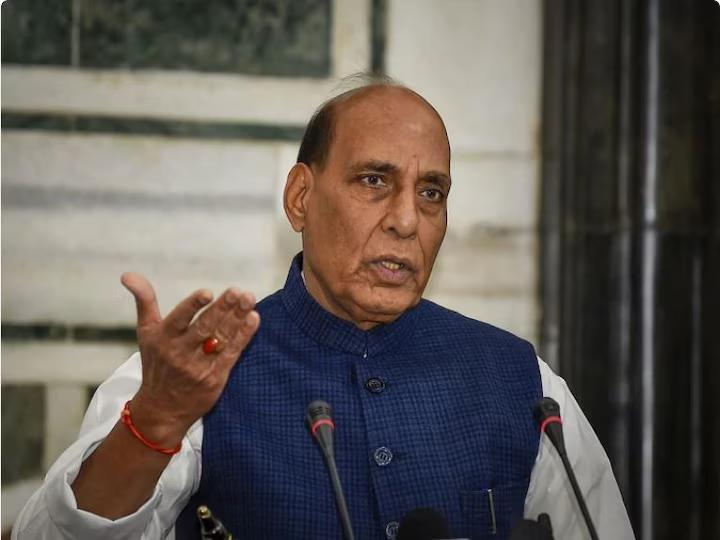
Cyberattacks now tools to achieve politico-military aims: Rajnath
In today’s fast-evolving world, technology has become an indispensable aspect of national security and geopolitics. The Defence Minister of India, Rajnath Singh, recently highlighted this phenomenon, stating that cyberattacks, disinformation campaigns, and economic warfare have become tools that can achieve politico-military aims without a single shot being fired. This shift in the dynamics of warfare is a stark reminder of the importance of technological innovation in combat theatres and the need for a robust defence technological ecosystem.
Singh’s remarks were made during a recent event, where he emphasized the significance of building an indigenous and future-ready defence technological ecosystem. He emphasized that the power of technological innovation in combat theatres is “breathtaking”, and it is crucial to leverage this potential to stay ahead of the curve. The Defence Minister’s statement is a clear indication of the changing nature of warfare, where traditional conventional methods are no longer the only means to achieve politico-military aims.
Cyberattacks have become a common phenomenon in modern warfare, and their impact can be devastating. From crippling critical infrastructure to stealing sensitive information, cyberattacks can cause significant harm to a nation’s security and economy. In recent years, we have seen several high-profile cyberattacks, including the NotPetya attack in 2017, which caused an estimated $10 billion in damages. The WannaCry attack in 2017, which affected over 200,000 computers in 150 countries, is another example of the destructive power of cyberattacks.
Disinformation campaigns are another tool that has become increasingly popular in modern warfare. The spread of false information can be used to manipulate public opinion, create confusion, and undermine an enemy’s morale. The use of social media platforms has made it easier to spread disinformation, and it is estimated that over 60% of people get their news from social media. The impact of disinformation campaigns can be significant, and it is essential to develop strategies to counter these attacks.
Economic warfare is another aspect of modern warfare that has gained significance in recent years. Economic sanctions, trade restrictions, and cyberattacks on critical infrastructure can all be used to weaken an enemy’s economy. The use of economic warfare can be a more effective way to achieve politico-military aims than traditional military methods, as it can cause long-term damage to an enemy’s economy and infrastructure.
The importance of a robust defence technological ecosystem cannot be overstated. In today’s fast-evolving world, technological innovation is the key to staying ahead of the curve. A defence technological ecosystem that is indigenous and future-ready is essential for a nation’s national security and economic prosperity. The development of advanced technologies such as artificial intelligence, cybersecurity, and quantum computing is crucial for building a robust defence technological ecosystem.
India has been making significant strides in developing its defence technological ecosystem. The country has been investing heavily in research and development, and has made significant progress in developing advanced technologies such as artificial intelligence and cybersecurity. The Indian government has also been promoting the development of a defence industry, and has set up initiatives such as the Defence Innovation Organization (DIO) to promote innovation and entrepreneurship in the defence sector.
In conclusion, the Defence Minister’s statement highlights the changing nature of warfare, where cyberattacks, disinformation campaigns, and economic warfare have become tools that can achieve politico-military aims without a single shot being fired. The importance of a robust defence technological ecosystem cannot be overstated, and it is essential for a nation’s national security and economic prosperity. India has been making significant strides in developing its defence technological ecosystem, and it is crucial that the country continues to invest in research and development to stay ahead of the curve.






